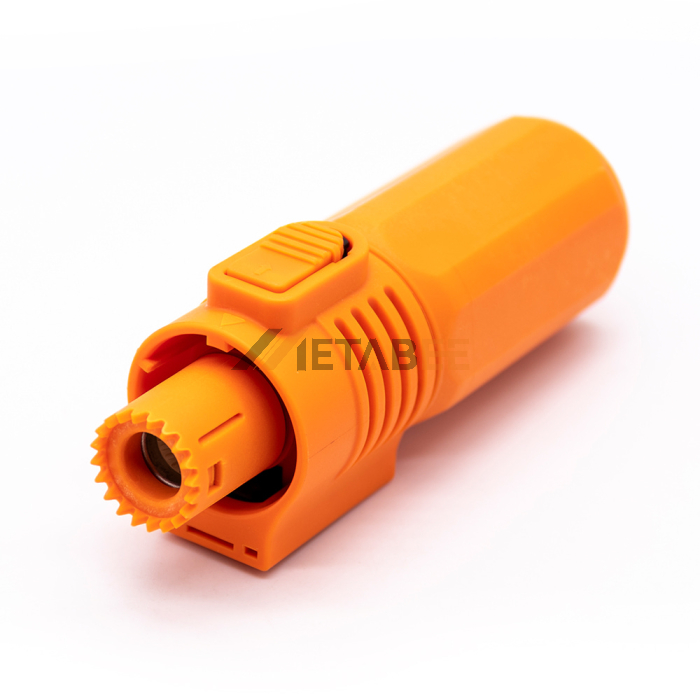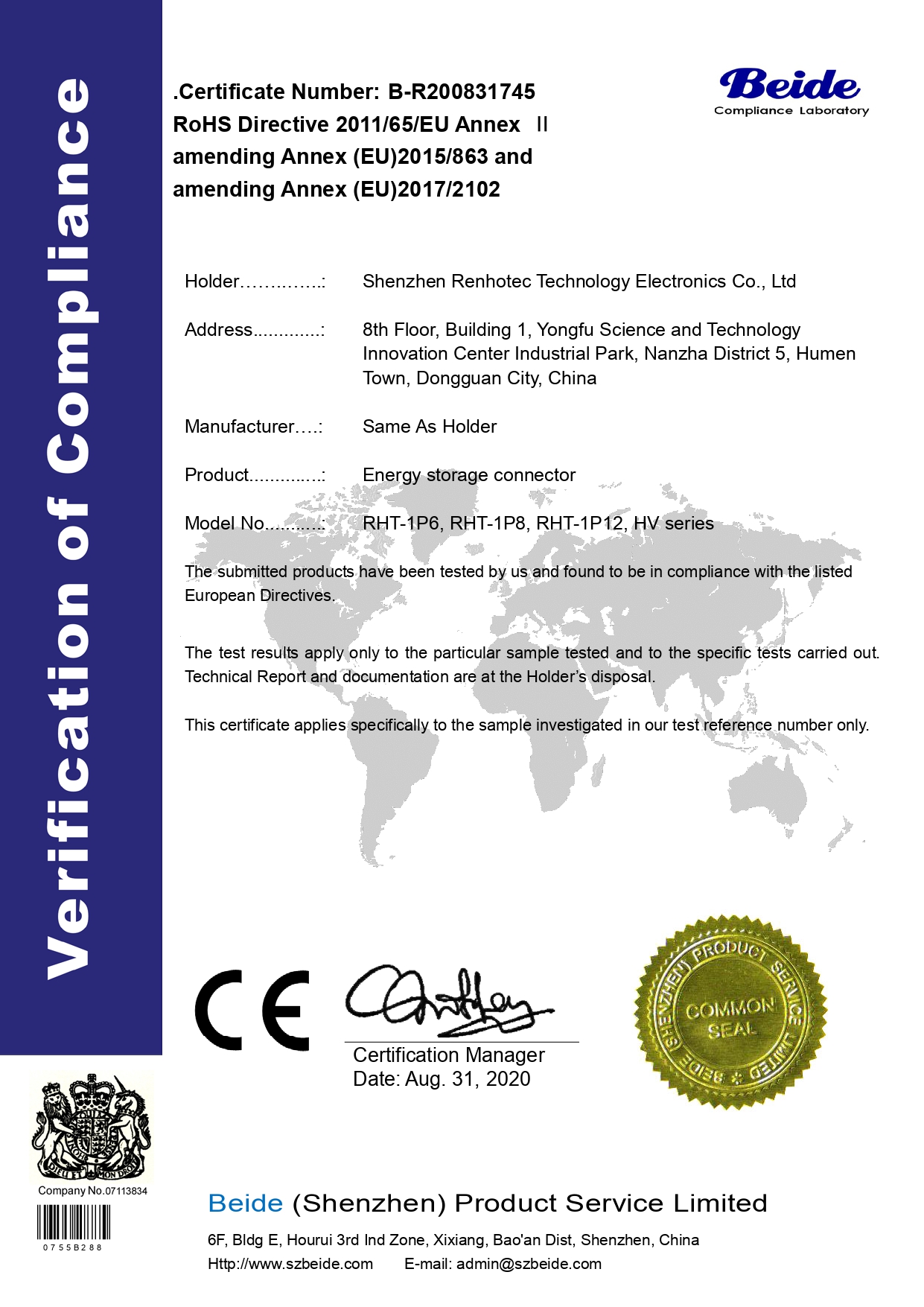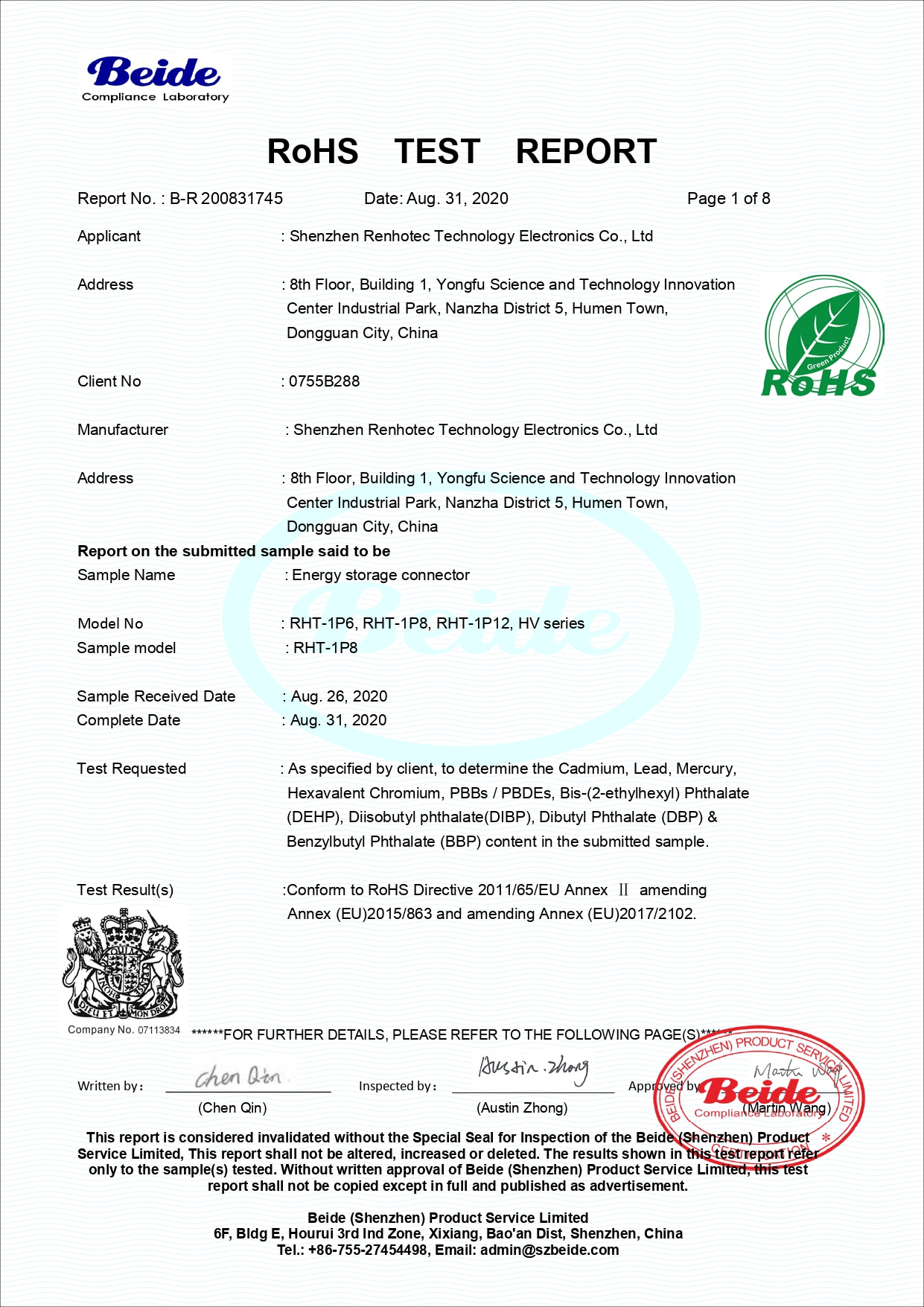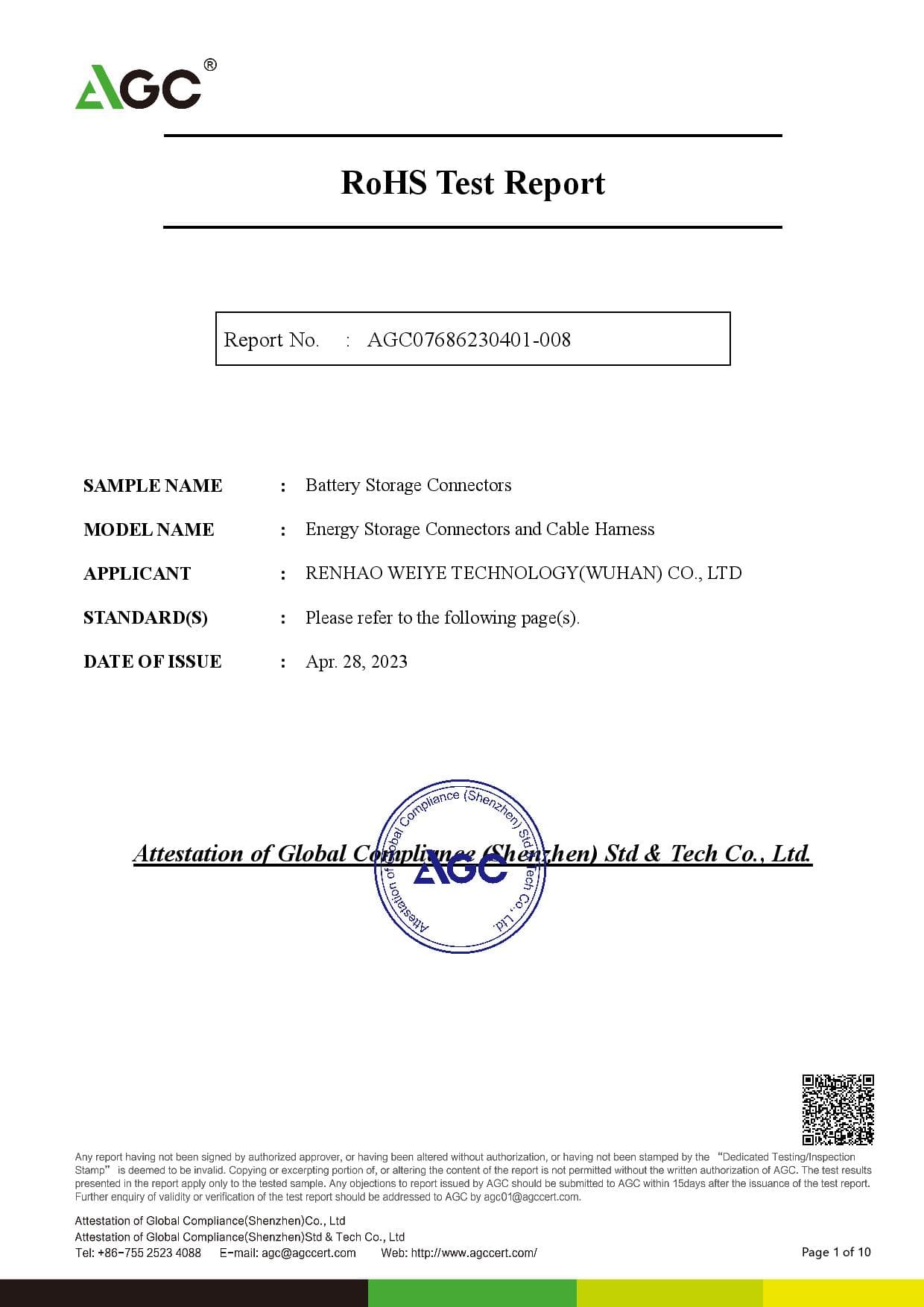Waterproof Energy Storage Connector Straight 200A Orange 50mm² Unshielded Cable Z Key
- !! This product is not compatible with other brand products. It would be best if you bought the same key plug and socket of this brand to use it properly.
- High current rating, high ampacity in a smaller package.
- High reliability, meets or exceeds the electrical performance of bolt-on compression lugs.
- Easy field install - crimp with standard color-coded dies. No torque wrenches are required.
- Integral locking feature plus locking cap.
- RoHS compliant
Descriptions
Connector for Energy Storage Systems
Energy storage connectors are mainly used to connect battery modules of energy storage systems in series, making it safer for workers to install energy storage systems (ESS).
Our Energy Storage Connectors meet customers’ critical technical indicators such as plugging force, insulation resistance, dielectric strength, and temperature rise through professional CAE simulation design. They are widely used in energy storage, new vehicles, and other industries.
ESS designers can use the connectors in tandem or separately based on the specific application requirements. The battery storage connectors are installed on the front of battery modules, while the connectors are installed on the back.
The energy storage connectors rotate 360 degrees, so they can accommodate the best angle to arrange heavy cabling. They have mechanical coding that protects against polarity reversal and prevents incorrect mating.
The battery storage connectors have a drawer-style, slide-in connection, eliminating the need for field wiring. The modular connection system can be scaled to meet application requirements, removing the constraints of cabling and allowing higher power distribution.
Specification
Features
Suitable for Installation Environment, Three Colors Available


In order to be more adaptable to more installation scenarios, Metabee energy storage connector plugs are generally curved, we can also make straight plugs according to your needs.
The connectors are available in orange, red and black colors.
Generally, orange or red plugs are used for the positive terminal and black plugs for the negative terminal.
Custom Wire Harnesses


In addition to connectors, we can customize various energy storage connector harnesses to suit your needs.
Metabee energy storage connector harnesses can be adapted to 60A~350A rated current and 10mm²~95mm².
Three Types of Terminals are Available


The receptacles of Metabee energy storage connectors are available with three types of terminals: copper plate thread, female thread, and male thread.
You can choose the socket with the correct terminal block according to your specific installation environment.
Anti-mistake Touch & 360°Rotation & Slide-in Connection
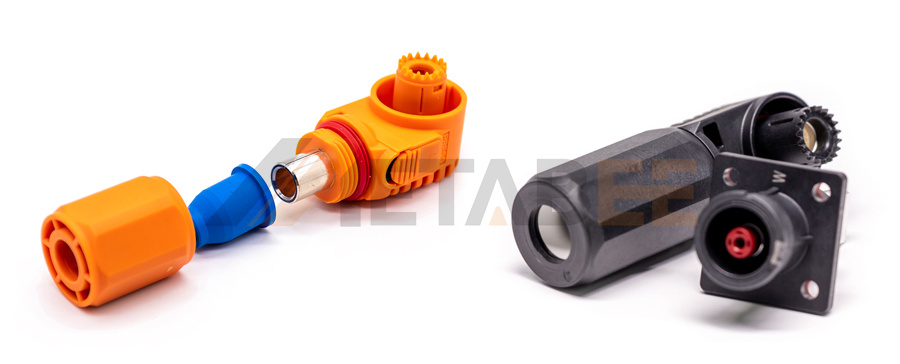

When the plug is inserted into the socket, you will hear a 'click'. Press the button to pull out the plug.
How to Order Based on Mfr Part


Applications
- EV / HEV
- Rail Mass Transit
- BMS / Energy Storage
- Process Control / Automation
- Medical Industry
- Heavy Equipment
Certificates
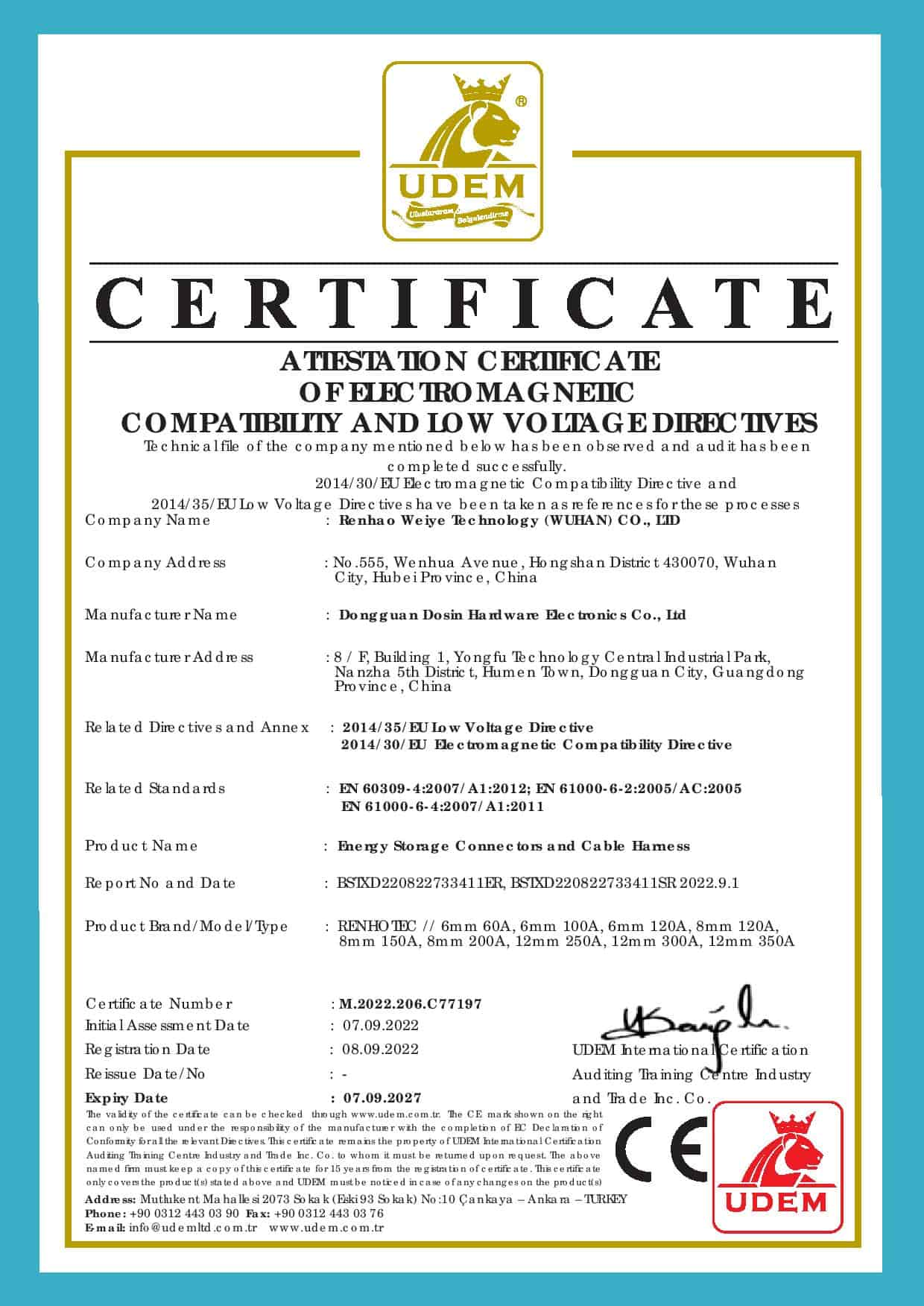
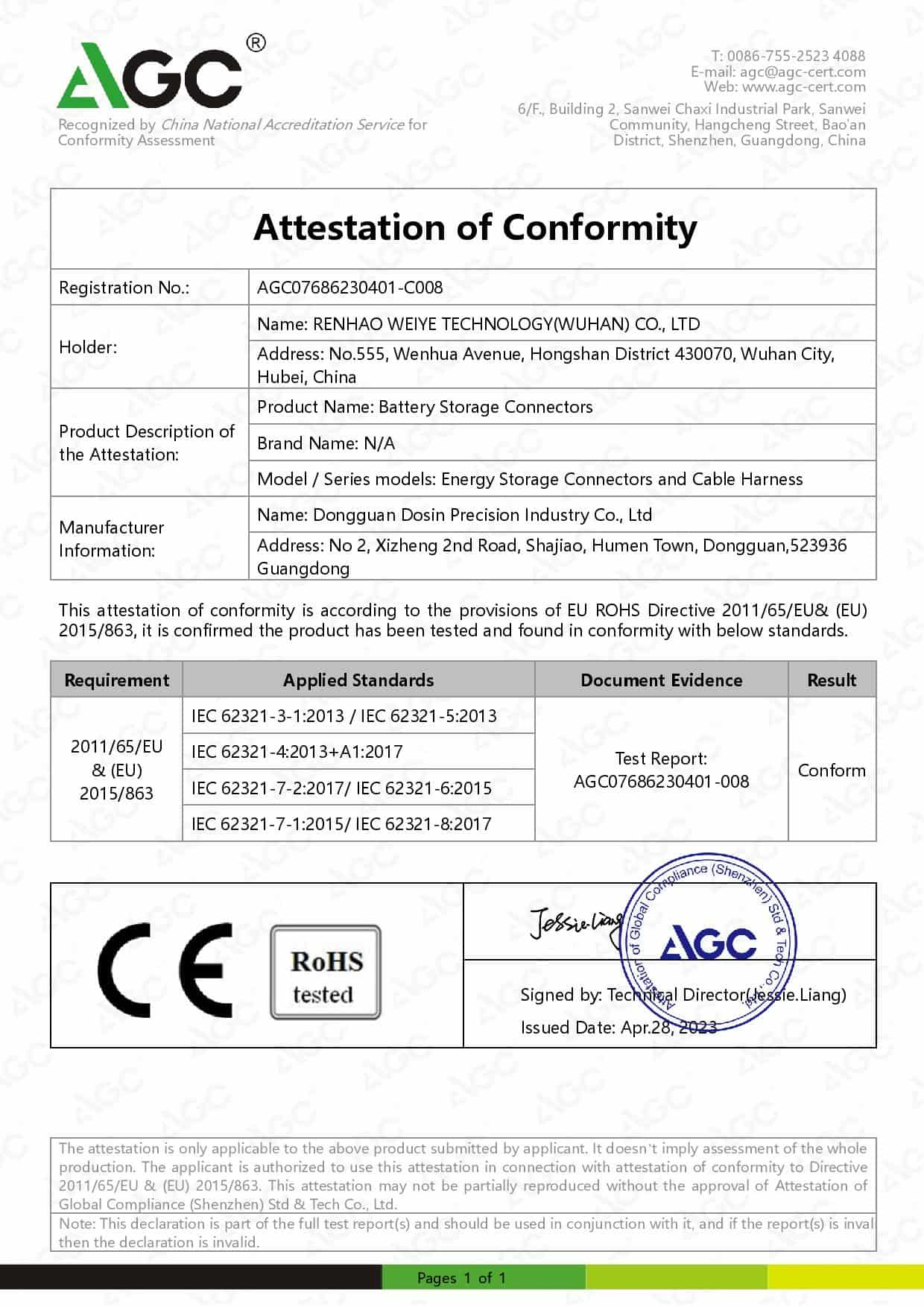
Downloads
Questions
-
Q:How long does it take to process my order?A:If the products are in stock, the processing time will be in 1day. If it's a customized product, the usual processing time will be about 3 to 5 working days.
Reviews
-
Great productI am thoroughly impressed with the Energy Storage Connector 200A Z Key. The quality of the cable is superb and the product arrived quickly. I highly recommend this product for anyone needing a reliable energy storage connector.
Posted on
-
Great productI am thoroughly impressed with the Energy Storage Connector 200A Z Key. The quality of the cable is superb and the product arrived quickly. I highly recommend this product for anyone needing a reliable energy storage connector.
Posted on
-
Fast deliveryI needed the Energy Storage Connector for a project and was very pleased with the fast delivery. The product was high quality and worked perfectly for what I needed it for.
Posted on
-
Fast deliveryI needed the Energy Storage Connector for a project and was very pleased with the fast delivery. The product was high quality and worked perfectly for what I needed it for.
Posted on
-
Great quality and fast deliveryI ordered the Energy Storage Connector Z Key and was impressed with the quality of the product. The cable was sturdy and reliable. Additionally, the delivery was very fast, which was a huge plus.
Posted on
-
Great quality and fast deliveryI ordered the Energy Storage Connector Z Key and was impressed with the quality of the product. The cable was sturdy and reliable. Additionally, the delivery was very fast, which was a huge plus.
Posted on

